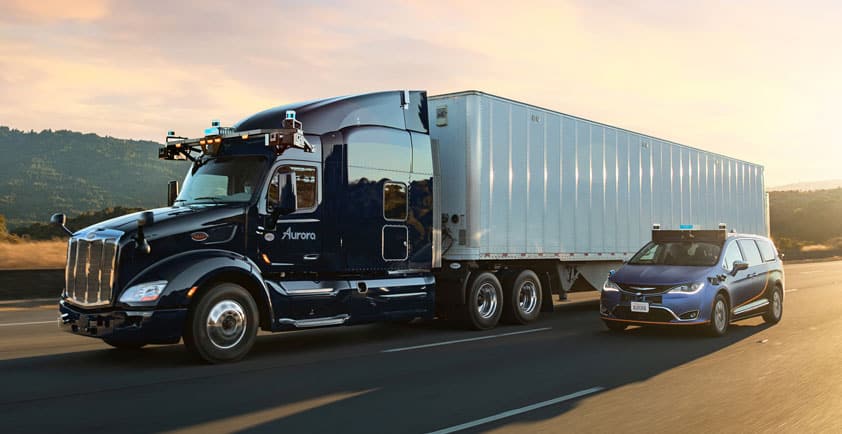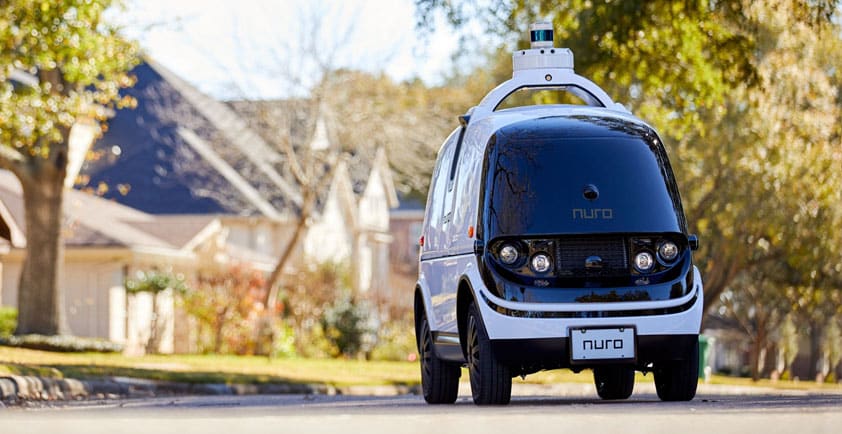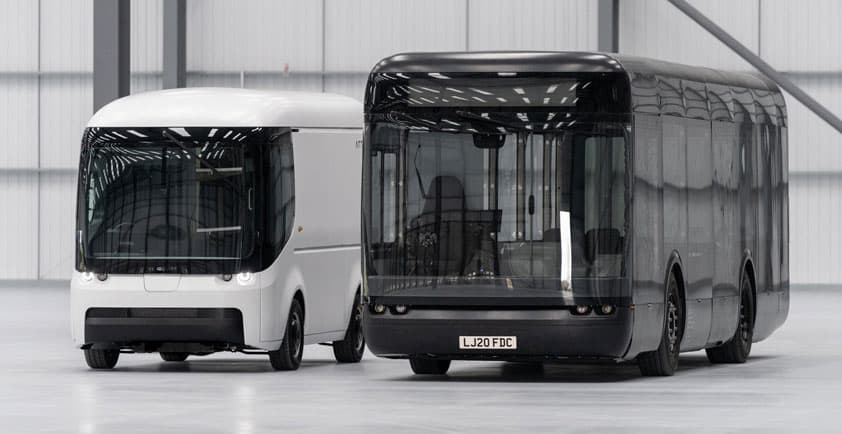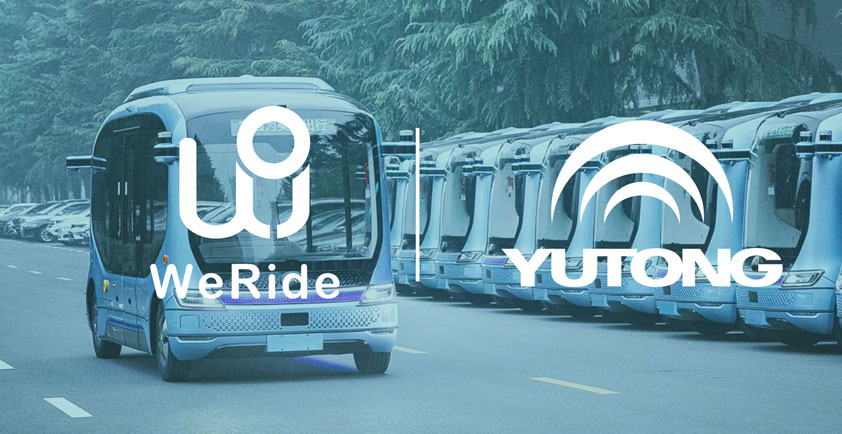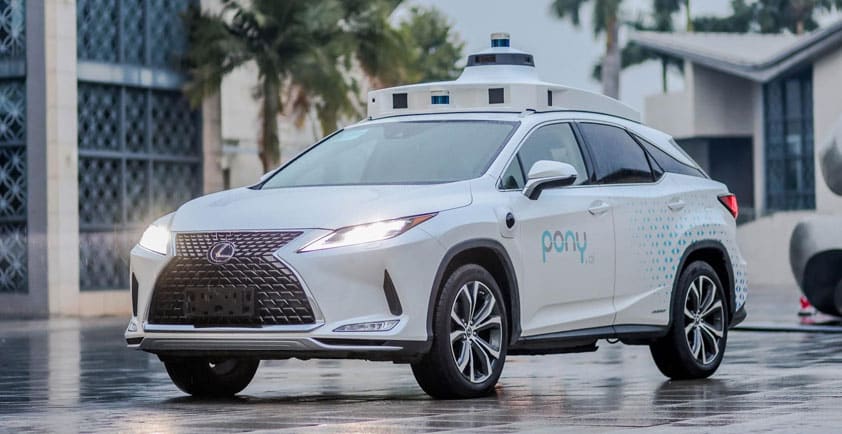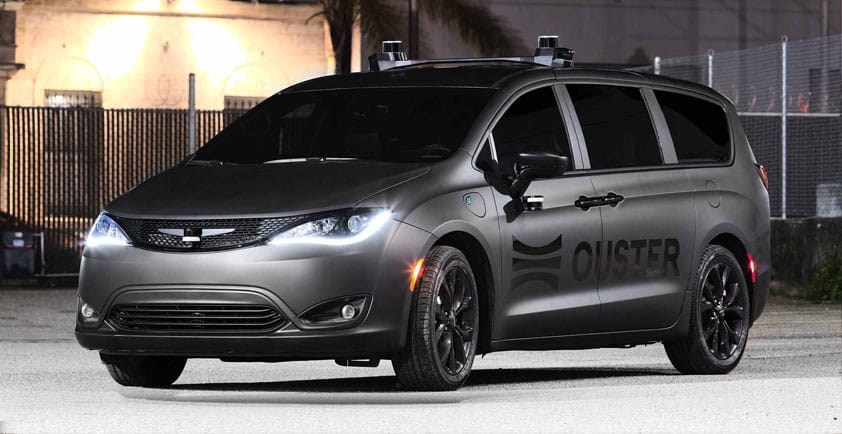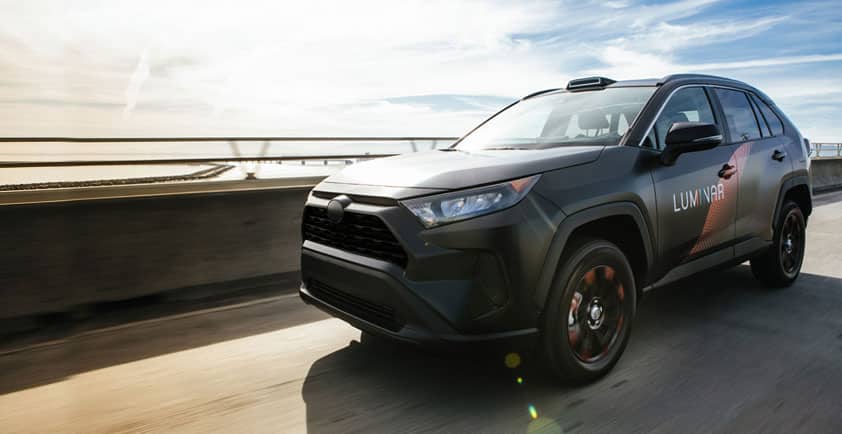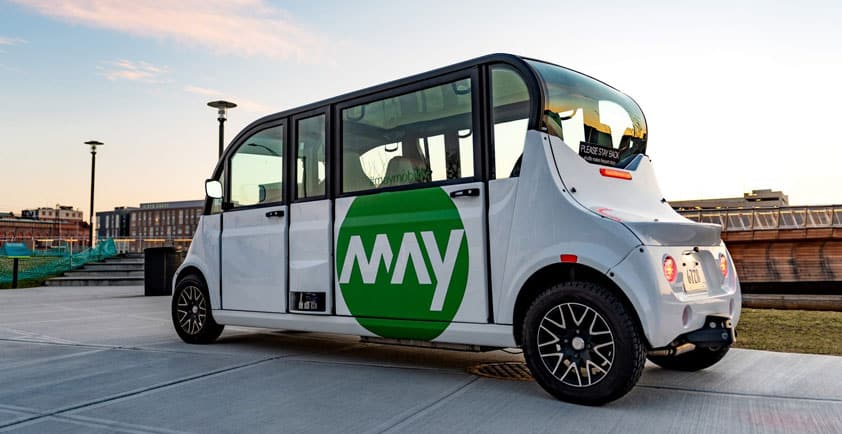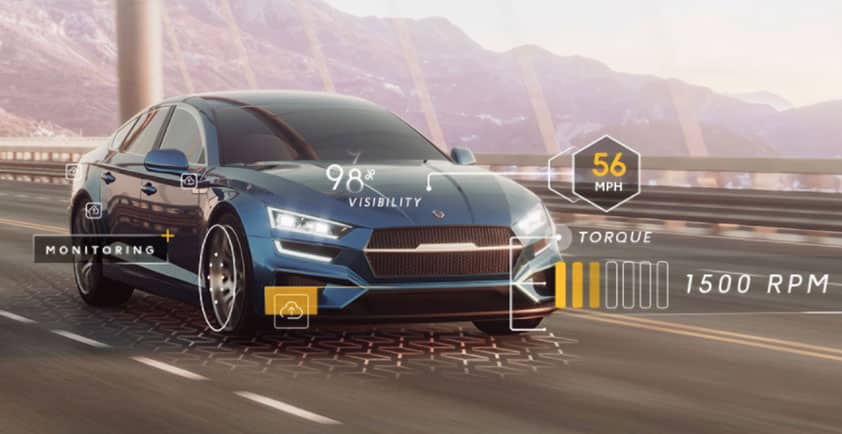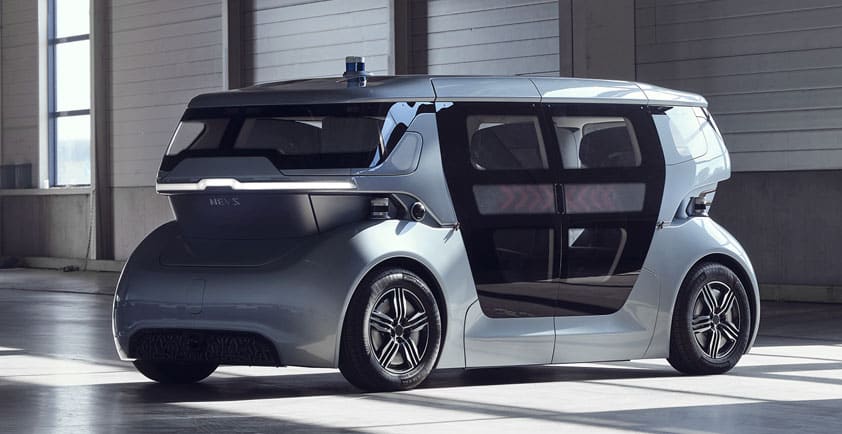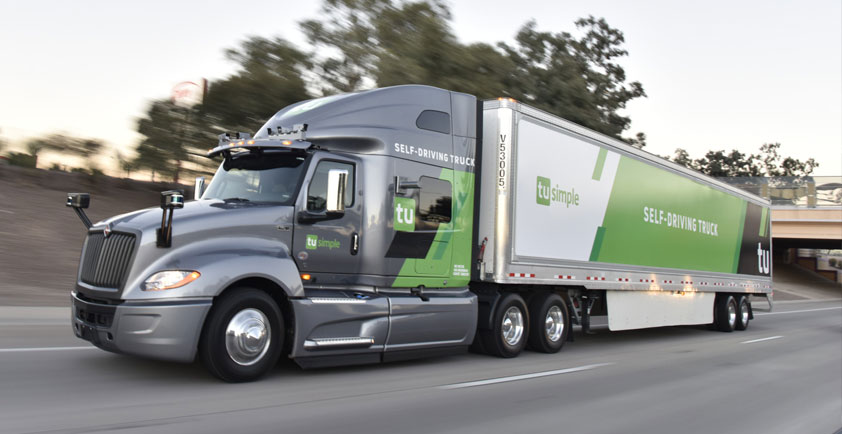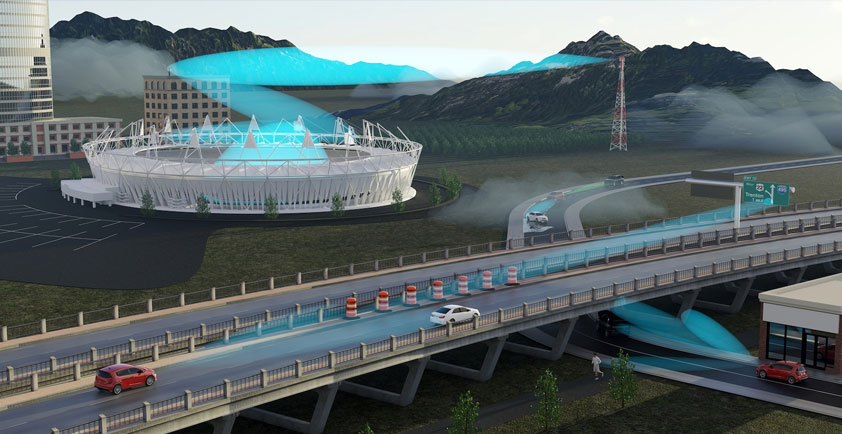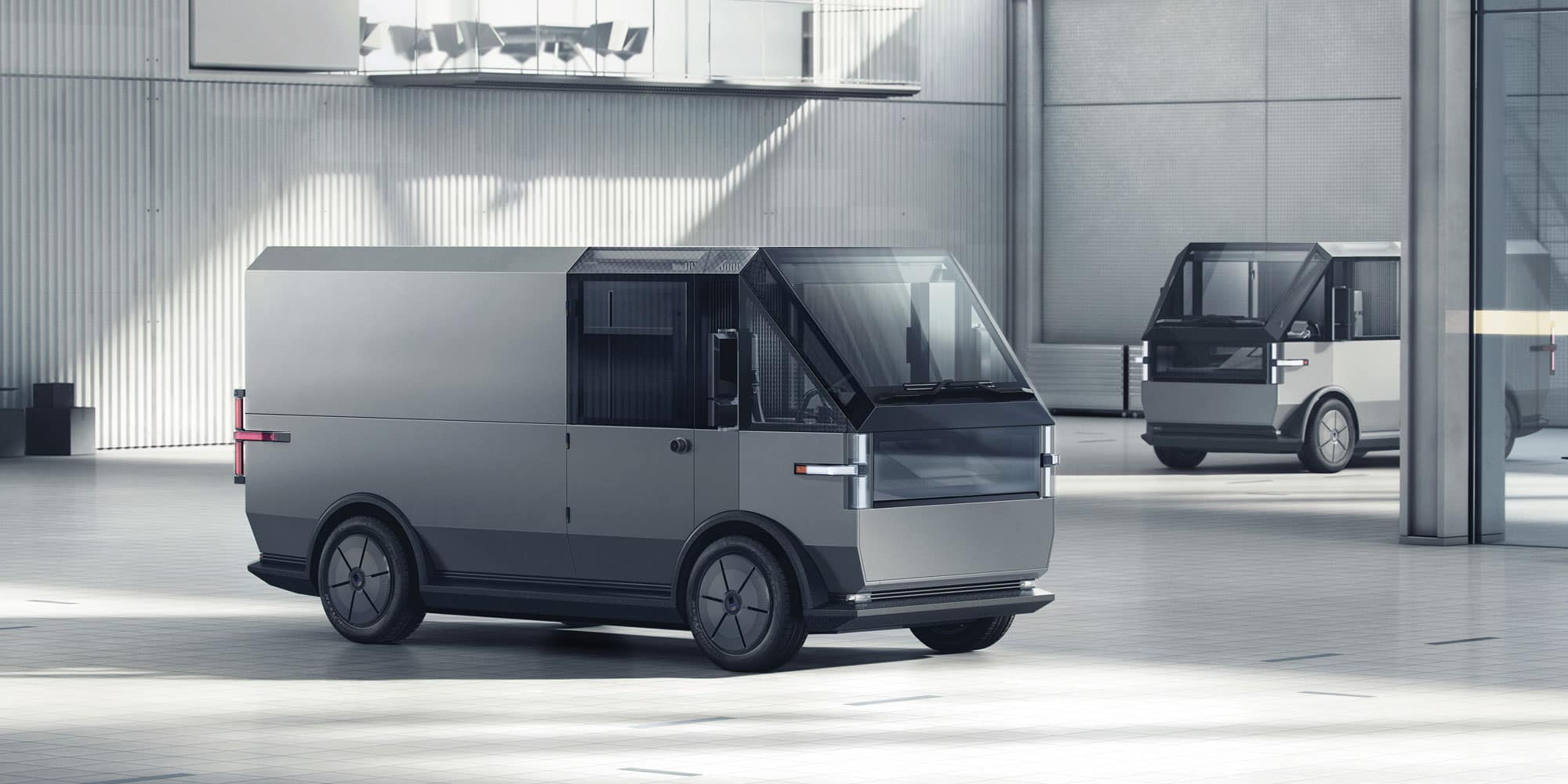
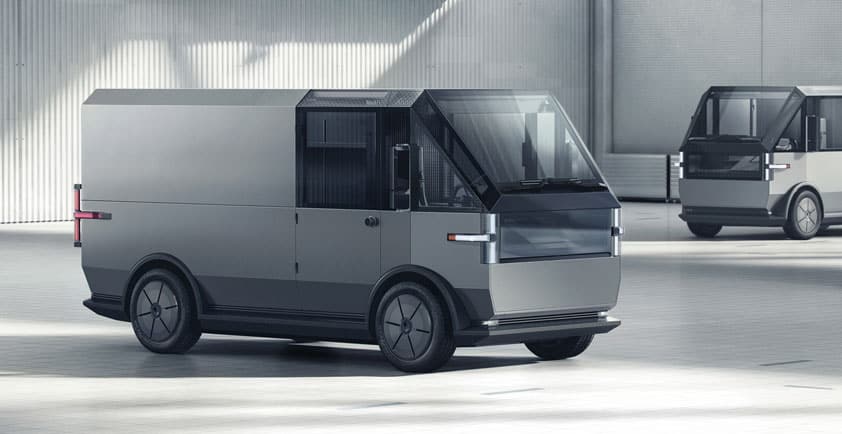
CANOO UNVEILS FULLY-ELECTRIC MULTI-PURPOSE DELIVERY VEHICLE TO OFFER BEST-IN-CLASS TOTAL COST OF OWNERSHIP
>> Canoo’s vehicle is purposefully designed to offer maximum productivity, efficiency, class-leading cargo volume and cost savings
LOS ANGELES, CA – Canoo, a company developing breakthrough electric vehicles (EVs), revealed today its all-electric multi-purpose delivery vehicle to be priced starting at approximately $33,000. The vehicle is purposefully designed to maximize return on investment for its customers. It is based on Canoo’s proprietary electric platform and will be offered in two initial size variants, with others to follow. Limited availability will begin in 2022, with scaled production and launch planned for 2023. With its multi-purpose delivery vehicle, Canoo plans to offer customers best-in-class total cost of ownership, class-leading cargo volume, and functionally-designed features. Customers can pre-order the multi-purpose delivery vehicle for a refundable deposit of $100 per vehicle at www.canoo.com/mpdv.
“We created our multi-purpose delivery vehicle from the inside out, with the ergonomics of the driver in mind and with attention to detail to help them be happier and more productive at work,” said Tony Aquila, Executive Chairman, Canoo. “The vehicle is affordable and offers greater cargo capacity than the current electric delivery offerings in its class. We aim to lower the total cost of ownership and increase return on investment for everyone from local small business owners to large fleets.”
Multi-Purpose for Multiple Use Cases
As an integral part of Canoo’s business strategy, the functional design of the multi-purpose delivery vehicle is meant to service a wide range of customers. It was built specifically with the needs of small businesses and large last-mile delivery companies in mind. The design of the model paired with the best-in-class total cost of ownership (TCO) also makes it a great option for independent contractors, utilities, service technicians and many more.
Large customers, such as last-mile and package delivery fleets, retailers, major corporations and logistics companies, also have the option to co-develop a custom vehicle with Canoo to meet their specific requirements.
Best-in-Class Total Cost of Ownership & Cargo Volume
With this vehicle, Canoo plans to achieve best-in-class total cost of ownership through range and space efficiency, as well as durability and low maintenance costs. Leveraging the company’s proprietary platform is expected to reduce material and service costs, passing on considerable savings to customers.
Canoo’s proprietary electric vehicle platform is the flattest in the industry and has enabled potentially class-leading interior cargo volume on a small vehicle footprint. Interior volume is also maximized through Canoo’s signature driver-forward architecture, which was designed with safety in mind. Canoo estimates that its multi-purpose delivery vehicle customers can achieve between $50,000 to $80,000 improvement on return on capital over six to seven years, depending on the use case, as compared to other top selling delivery vehicles.
Productivity is our Passion
To maximize user functionality, the production vehicle plans to offer a bi-directional onboard charger in lieu of adding a separate DC-AC converter, which will transform the vehicle into a power plant for equipment and tools. A 125V or 240V AC output power plug can be incorporated into the vehicle so tools such as saws, drills and air compressors can be conveniently powered up at remote destinations. The vehicle also enables various workstations. For example, drivers who have to take notes per delivery or job will have the ability to place a laptop or other devices to the left of the driver's seat.
The vehicle was designed from the inside out to be sensitive to the ergonomics and productivity of the people using it. Additional vehicle customization examples that focus on ergonomics and productivity gains include high roof height, storage lockers, roll-up style door, ramp slide outs and more. Both vehicle variants are designed to offer a low step in height of 17 inches, allowing easy and comfortable access to the vehicle. With the space efficiency afforded by Canoo’s multi-purpose delivery vehicle, fleets can accommodate higher storage capacities to meet the increasing demands of their customers.
The vehicle enables greater “up time,” or the actual hours of use, through a range of unique benefits, including:
> Greater cargo space with nearly 30% more parcel volume than other leading delivery vehicles in comparable segments.
> Range efficiency means more stops can be made on a single charge, helping to lower operating costs.
> Energy efficiency provides considerable savings in terms of operating expenses because the vehicle can go further per kilowatt of energy than the competition.
> Urban maneuverability enabled by Canoo’s steer-by-wire technology which eliminates hand-over-hand driving and increases range of motion and route options.
Anticipated Vehicle Specifications
The multi-purpose delivery vehicle is a ground up electric design, meaning it was not retrofitted or designed based off of a gas- or diesel-powered model. This has enabled a more thoughtful, reliable and efficient EV design made specifically for people to use the vehicle as a workspace, such as plugging in their tools for a remote job.
The multi-purpose delivery vehicle will be built on Canoo’s proprietary EV platform which features a steel frame construction, transverse composite leaf springs, a double wishbone suspension system, variable ratio steer-by-wire and brake-by-wire. The vehicle will be fully connected with data reporting capabilities and will feature Level 2.5 autonomy and over-the-air software updates. The vehicle will also support cutting-edge software-as-a-service (SaaS) to help fleets improve their total cost of professional ownership (TCPO) by allowing them to manage their assets, route plan, run diagnostics and support drivers with safety, awareness and ergonomic information. Canoo’s industry leading steer-by-wire system will enable a smooth transition into self-driving capabilities once full autonomy becomes commercially available. Steer-by-wire also helps accelerate the internationalization plans for the vehicle, allowing for rapid deployment of a right-hand drive offering.
The two vehicle variants, multi-purpose delivery vehicle 1 (MPDV1) and multi-purpose delivery vehicle 2 (MPDV2), are expected to offer three battery sizes—80, 60 and 40 kilowatt-hours (kWh)—with the 80-kWh size featuring a DC Fast Charging time of 28 minutes from 20% to 80% charge.
MPDV1
Offering more capacity at an affordable price, the MPDV1’s superior range efficiency and urban mobility is enabled by a space efficient footprint. The vehicle is also designed to fit within many height restricted areas like parking garages.
MPDV2
The MPDV2’s roof and step-in height enable individuals to easily walk in/out of the vehicle, and with nearly 6.5 feet of interior height throughout, it is tall enough to accommodate a standing position while inside, leading to greater usability and comfort for drivers.
MPDV3
Canoo is preparing to launch a third, larger variant that will be in the class 3 truck category, following the introduction of MPDV1 and MPDV2.
The Electric Revolution
As companies are increasingly pressured by both regulators and consumers to reduce their carbon footprint, the adoption of EVs among commercial delivery vehicles is expected to see a dramatic increase. This shift is projected to be led by the light commercial vehicle segment, an initial target segment for Canoo. The demand for EV light commercial vehicles in the United States, Europe and China is expected to grow at a 33% CAGR from 2019 to 2028, according to BloombergNEF.
Further, the growth and increase in efficiency of e-commerce has resulted in a change in consumer expectations with e-commerce providers increasingly pushing to reduce package delivery times from two days to the same day. According to Canoo commissioned research, it is projected that same day parcel delivery volumes in the United States will grow to 10 billion parcels by 2030, reflecting an approximate 23% annual growth rate since 2019. This change is expected to result in an increase in demand for smaller delivery vehicles that can efficiently execute smaller volume and more frequent delivery routes.
The vehicle is built off of Canoo’s platform, which has enabled the accelerated design and launch timelines of the company’s second vehicle model. Other variations of the multi-purpose delivery vehicle will follow, and Canoo plans to announce a service network at a later date.
While a number of EV companies have recently announced plans to produce delivery vehicles, the last-mile delivery market is an entirely distinct segment and classification of vehicle differentiated from larger and midsize delivery vehicles and trucks. Last-mile delivery vehicles operate in predominantly urban environments with diverse use cases, thus requiring a compact size and maneuverability. The vehicles used are generally from the light commercial vehicles segment and a majority of the vehicles are from the class 1 category.
These class 1 vehicles carry the same stringent regulatory and crash testing requirements that passenger cars are subjected to. Canoo’s platform, which is specifically designed for class 1 vehicles, has been validated to support these crash requirements via its passenger vehicle program. This provides Canoo a significant competitive advantage as most of the players in the commercial vehicle space have not crash tested their platforms given their focus on larger sized vehicles.
Following its U.S. commercial debut, Canoo will look to launch the multi-purpose delivery vehicle in other markets such as Canada, Mexico and Europe.
